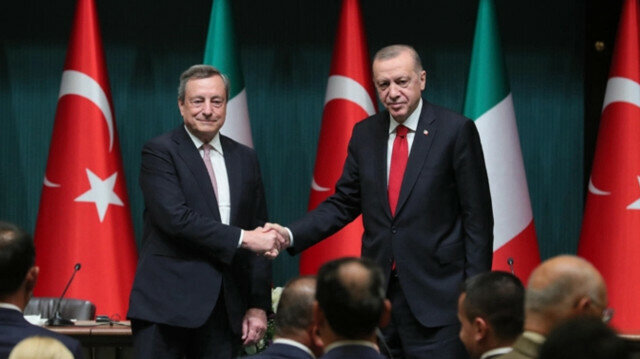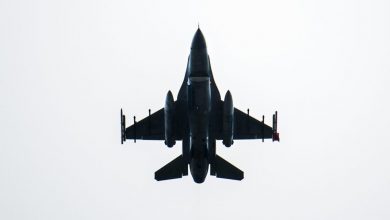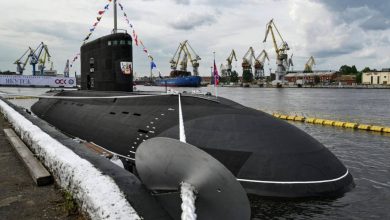Analysis: Türkiye-Italy summit to consolidate bilateral dialogue

The third intergovernmental summit was an opportunity to further confirm the mutual importance and consolidate the bilateral dialogue between Türkiye and Italy
The third intergovernmental summit between Italy and Türkiye, which took place in Ankara on July 5th, was successfully concluded.
After ten years of stalemate, the intergovernmental initiative has restarted leading for the first time the Italian Prime Minister Mario Draghi to Türkiye at the head of a large delegation composed of the Minister of Foreign Affairs and International Cooperation, Di Maio; Minister of the Interior, Lamorgese; Minister of Defense, Guerini; Minister of Ecological Transition, Cingolani; Minister of Economic Development, Giorgetti. Bilateral issues were discussed during the plenary session and the parties signed two agreements and seven understandings that confirm the great complementarity between the two countries in different sectors and areas.
– Cooperation and defense are the main areas of the agreement
Specifically, alongside the memoranda of understanding on political consultations between the two ministries of foreign affairs, and between the training unit of the Italian MAECİ and the diplomatic academy of the Turkish MFA, two agreements were signed on key areas.
The first refers to the mutual recognition of driving licenses, while the second one concerns the mutual protection of classified information in the defense industry. Consisting of 18 articles, the second agreement is intended to ensure the security of classified information exchanged between Italy and Türkiye in the context of industrial development and military procurement activities. In this scope, each of the two sides undertakes to protect the classified information, received from the other one, based on its own national sector legislation and to process it by applying the security measures provided by its own respective regulations as well as prohibiting the transfer of classified information to third parties without the prior consent of the counterparty.
The agreement on defense also defines the methods of reproduction, translation, and destruction of classified information, in addition to the procedures for the exchange of visits between Italy and Türkiye or between companies under their jurisdiction, which involve access to classified information.
Certainly, this marks a further step in the already existing synergy in the field of defense, which eventually may be understood as a forerunner for the acquisition of the SAMP/T missile defense system and possible technology transfer to Ankara. As SAMP/T is the cornerstone of Italy and France’s contributions to the North Atlantic Alliance tactical ballistic missile defense capability, enlarging the scope of defense of Türkiye in a time of regional instability and arising threats could be a win-win strategy.
– Regional security passes through Türkiye
Indeed, Italy and Türkiye are both longstanding NATO members and therefore share the same values, visions, and priorities relating to defense and security, as well as a crucial commitment to facing the same challenges and threats. As a matter of fact, along with its diplomatic efforts Ankara has already proved its mediator role in the current Russia-Ukraine crisis as well as its efforts in avoiding any regional disruption.
The hypothesis of including Türkiye in the Eurosam had been raised on the sidelines of the NATO summit in Brussels last April and recently it has been reiterated several times. In fact, Italy and France have already joint production activities in Türkiye, which are concretely underlining not only Ankara’s strategic peculiarity but also the urgent need to prevent and combat common threats.
Indeed, Italy and Türkiye share historical belonging to the Mediterranean, a basin characterized by challenges, fractures, and cooperative logic. The challenges posed by historical disputes, such as the one related to Cyprus, and the new outbreaks of crisis referring mainly to Ukraine and the Libyan conciliation process, are elements uniting the two countries.
Therefore, to some extent, Türkiye’s and Italy’s responsibilities in redefining the logic of this area are characterized by instability factors that are also attributable to terrorism and immigration. As the primary landing zones for massive migration flows, both countries are called to politically and socially address a humanitarian issue, which unfortunately is becoming unsustainable. Hence, it emerges the need for immediate answers can only come from a stable and cooperative environment.
As President Recep Tayyip Erdogan has clearly stated, the current conjuncture indicates how important Türkiye is for the security of Europe. The challenges that must be faced, in fact, are great and will have significant implications not only regionally, but also at the international level.
In this, Italy and Türkiye are united in condemning the Russian invasion of Ukraine and granting support to Kyiv. The diplomatic efforts focus on finding a sustainable solution aimed at the cessation of hostilities and the guarantee of lasting regional stability. Hence, Ankara’s efforts in mediating between the warring parties and the initiatives to create a corridor for the export of cereals from the Black Sea are of great relevance.
– Economy as backbone of Italy-Türkiye cooperation
The backbone of the Italian-Turkish complementarity lies at the economic level especially referring to the bilateral trade flows. Türkiye is today the first trading partner for Italy in the Middle East and North Africa region. In 2021, the bilateral trade was almost 20 billion euros, up to 23.6%, compared to the former year.
However, the economy-commercial relations are not limited to trade: while the Italian companies operating in Türkiye are more than 1500, the amount of Italian direct investments in Türkiye is about 6 billion dollars. The high level of satisfaction of the Italian companies operating in Türkiye, as demonstrated by the CeSPI-Ixe’s survey, is due to a very advantageous and competitive economic business system and geographical location of the country which is perceived as a bridge to entering third countries and thus relocate the global supply chain.
Moreover, in times of energy emergency and intense European diplomatic activity aiming at supply chain diversification, Ankara remains a fundamental interlocutor thanks to Türkiye’s role as a major energy corridor that intersects important pipelines from east to west and from north to south such as Tanap, Tap and TürkStream emerging as a connector to a third gas supply route for Italy after flows from Algeria and Russia.
The Italian PM Draghi has reiterated that “Italy and Türkiye are partners, friends, and allies”. Hence, beyond any speculation, the third intergovernmental summit was an opportunity to further confirm the mutual importance and to consolidate the bilateral dialogue, especially from a regional and global perspective with the ultimate goal of broadening the spheres of cooperation and minimizing the margins of friction.





